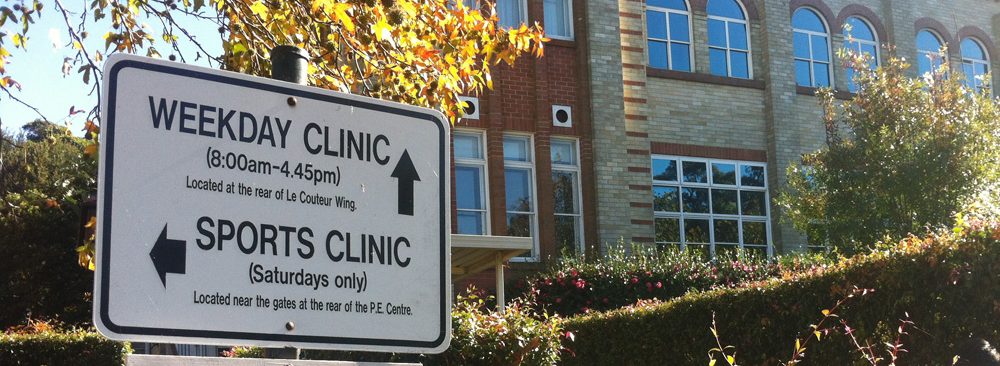From the School Nurse
Contact sports result in an increase in concussions seen in the clinic. Concussion is an injury to the brain usually caused by a blow to the head that results in a temporary loss of normal brain function. The brain floats in a cushion of spinal fluid surrounded by the skull. When the head is knocked, the trauma causes the brain to shift inside the skull resulting in injury.
Symptoms:
- Loss of consciousness may or may not occur.
- Headaches, seeing flashing lights
- Memory loss, confusion
- Nausea and vomiting
- Dizziness, slurred speech or ringing in the ears.
- Difficulty concentrating or balancing
- Mood swings
Assessing Concussion
Questions such as the day of the week, time, date and birthday, have been shown to be relatively ineffective in gauging concussion. This part of the brain is relatively well preserved. Questions that should be asked include:
- Which oval are we on?
- Which team are we playing today?
- Who is your opponent at present?
- Which side scored the last goal/try?
- Which team did we play last week?
- Did we win last week?
Players need to be referred to hospital immediately if any of the following occurs:
- Base of skull or facial fracture
- Eye injuries or unusual eye signs
- Weakness or paralysis in any limbs
- Bleeding from the ears
- Loss of consciousness for more than 4 minutes
- Continuing confusion or impairment 30 minutes post injury
- Deterioration in conscious state
- Any convulsive movements
If a person is unconscious then they should be treated as a neck injury and an ambulance called. Anyone who suffers a concussion should see a doctor and not return to play that day.
Physical and mental rest is the best way to recover. Following a concussion the person should not drive, drink alcohol, take pain killers (except paracetamol), do physical exertion or make important decisions.
In the clinic I can test for concussion using a simple paper and pen test matching numbers to symbols. I also use a Sport Concussion Assessment Tool (SCAT 2) test which is a standard series of questions, testing memory and checking balance. These are tools that help determine if a person is still concussed and are interpreted in conjunction with the person’s symptoms and history of injury.
The doctor will determine the length of time needed to recover (typically 2-4 weeks as young people recover quite slowly from concussions). It’s important during this time to avoid another knock to the head.
Following this a Graduated Return To Play program is commenced. This involves progressing from light aerobic activity to sport specific drills, to full contact over a period of about 5 days. If symptoms return then the person drops back to the previous level and the GRTP program takes a little longer. Medical clearance from a doctor, preferably a Sports Doctor or similar, should be obtained before returning to play.
The important point to take from all this is that concussions need to be taken seriously and managed properly.
Sister Margaret Bates RN
School Nurse
ph: 95689426 mob: 0407004738
m.bates@newingtoncollege.nsw.edu.au






